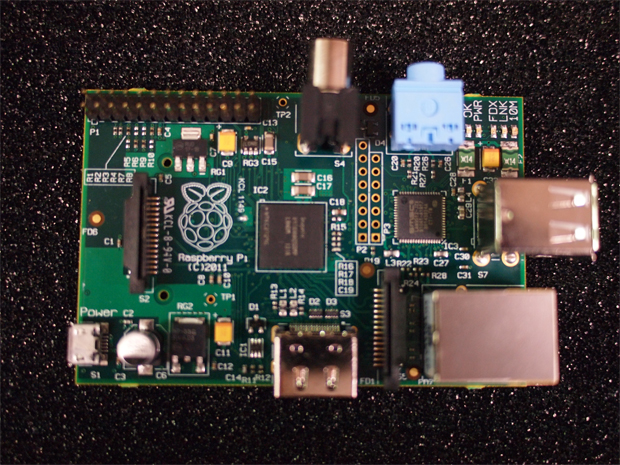Why does Raspberry Pi cost more here?

The runaway success of the US$35 Raspberry Pi computer has seen the not-for-profit Raspberry Pi Foundation and its vendor partners clarify just how much international buyers have to pay for the unit. Australians will shell out $50.95 for the diminutive system on a chip, but what does that price actually mean?

The Raspberry Pi
(Credit: Raspberry Pi Foundation)
The Raspberry Pi is a computer roughly the size of a credit card (85.60mmx53.98mmx17mm), and features a CPU clocking in at 700Mhz, 256MB of RAM and a bevy of ports, including a USB and LAN port, an SD card slot, HDMI out, audio out and, of course, a power port.
The Raspberry Pi Foundation is based in the United Kingdom, where it prices the board at US$35, due to the fact that it negotiates component prices in US dollars, and ships through its partners Element14 and RS Components. The Model B iteration of the board went on sale on 29 February, and sold out in minutes, with replacement stock not expected for weeks. RS Components said today that it has over 200,000 registrations of interest for the product so far. Registrations were, at one point, growing at a rate of 10 per minute, according to RS Components.
The Raspberry Pi Foundation took to its blog today to explain pricing before the next batch of units hits online shelves.
"We asked our worldwide distribution partners, Element14/Premier Farnell and RS Components, to offer you a bit of clarification about pricing around the world for the Raspberry Pi and its shipping, because some of you were getting some confusing feedback," the foundation wrote.
RS Components will now charge a universal flat rate for the device, meaning that customers can expect to pay £21.60 for the Raspberry Pi Model B, plus a £4.95 flat shipping charge, and taxes where appropriate.
"We will allow all orders to be placed on our website using this universal pricing mechanism, which will ensure that we ship on a first-come, first-served basis to everyone that has registered, in the order that they registered with RS following the launch on 29 February," RS Components said in a statement today.
Element14, however, has issued a guide as to how much it will charge each country for the Model B, including shipping and local taxes, which it said had been very difficult to nail down.
Element14's Raspberry Pi pricing
(Credit: Element14)
"In an effort to simplify our pricing and communicate transparently with our customers, we have produced the following grid for consumers, which shows for each country the price per device, including delivery costs in relevant currency, avoiding the need to calculate back from [pounds] to local currency in most instances. The variable element is local sales tax, which still needs to be added to the delivered price. This is proving hard to simplify," Element14 wrote.
Under the Element14 pricing schedule, Australians can expect to pay a total price of $54.75 for the board, which includes the price for the board, set at $50.95 (including delivery) and a $3.80 charge for Australia's goods and services tax (GST).
Comparing the price of the board, including delivery, to the price in pounds, Australians are set to pay an extra $14.50 for the Raspberry Pi Model B if ordered from Element14 (where AU$1 equals £0.673981 at the time of publication). Compared to the price in US dollars, Australians are set to pay $13.05 more (where AU$1 equals US$1.05535 at the time of publication).
While some may be quick to accuse Element14 of slugging Australians with the "Australia tax", the cost disparity is likely due to Element14 including shipping charges in the price of the board, as well as the general cost of doing business. All parties involved, including the Raspberry Pi Foundation, RS Components and Element14, are running close to or at cost for the construction and sale of the Raspberry Pi system on a chip.
It's simply the tyranny of distance that will have Australians paying more.